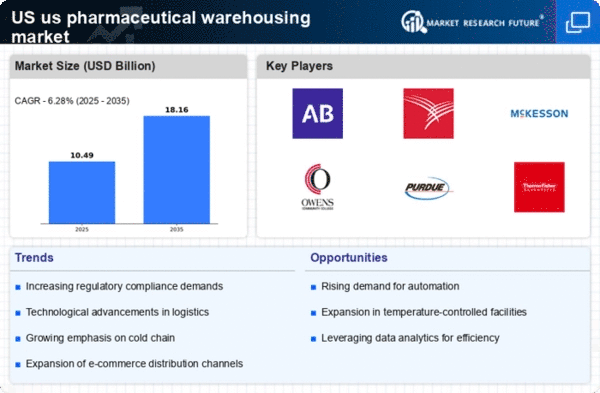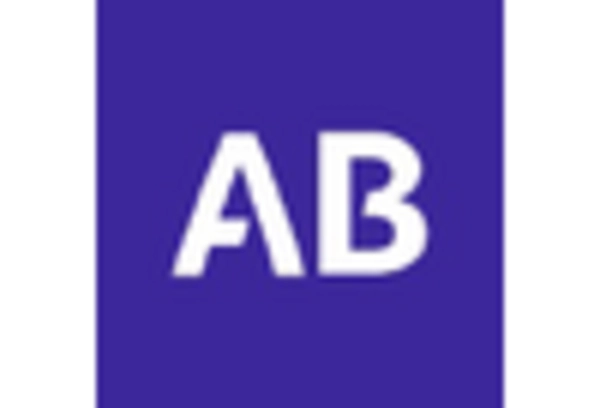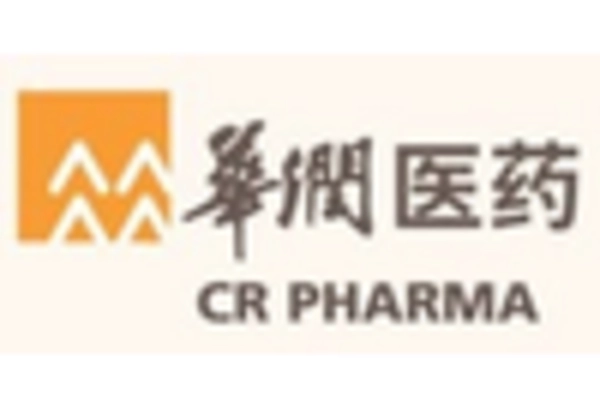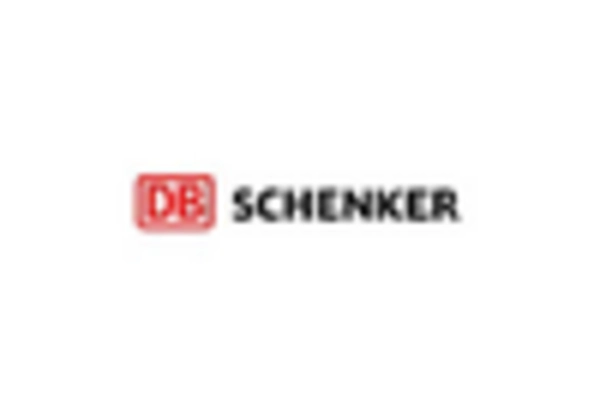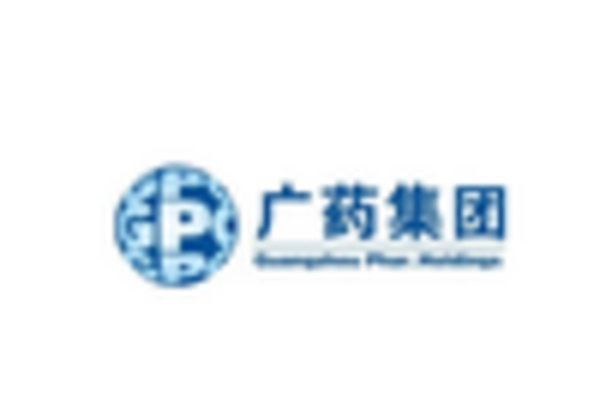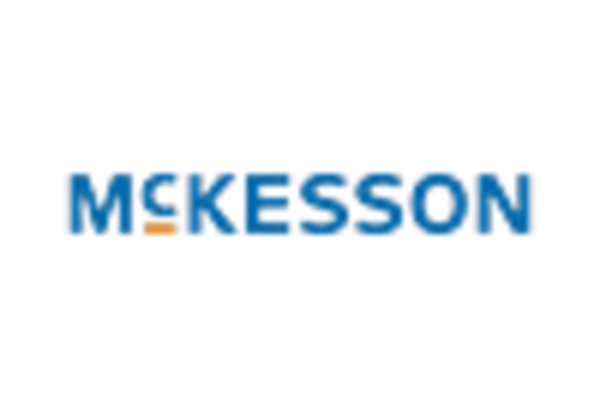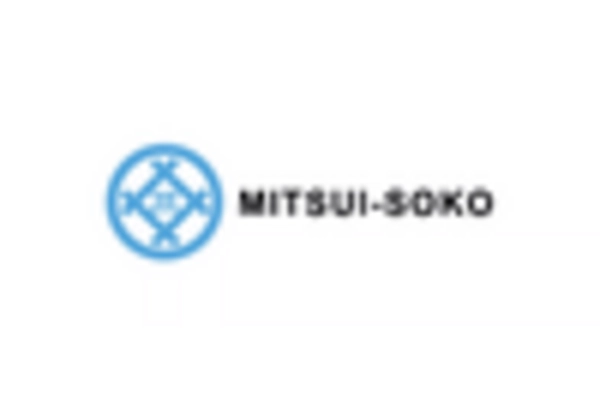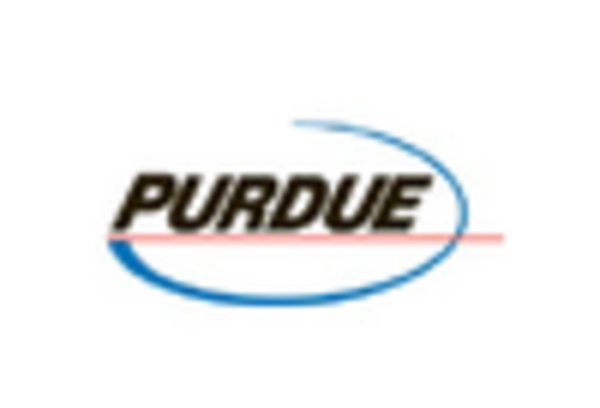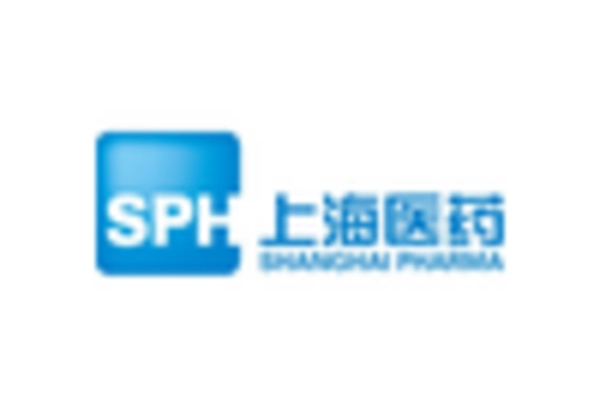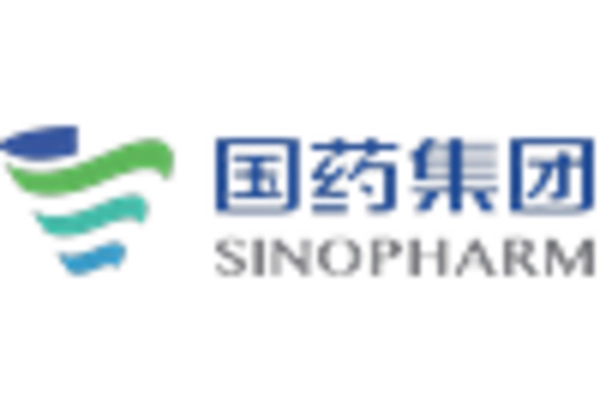E-commerce Growth in Pharmaceuticals
The rise of e-commerce in the pharmaceutical sector is reshaping the US Pharmaceutical Warehousing Market. With more consumers opting for online prescriptions and over-the-counter medications, pharmaceutical companies are increasingly investing in warehousing solutions that can support rapid order fulfillment and distribution. Data indicates that the online pharmacy market is expected to grow significantly, with estimates suggesting a CAGR of around 10% through 2026. This shift towards e-commerce necessitates the development of efficient warehousing strategies that can handle increased inventory turnover and ensure timely delivery, thus driving growth in the US Pharmaceutical Warehousing Market.
Rising Demand for Biopharmaceuticals
The US Pharmaceutical Warehousing Market is experiencing a notable increase in demand for biopharmaceuticals, driven by advancements in biotechnology and personalized medicine. As biopharmaceuticals often require specialized storage conditions, the need for temperature-controlled warehousing solutions is becoming paramount. According to industry reports, the biopharmaceutical sector is projected to grow at a compound annual growth rate (CAGR) of approximately 8% over the next five years. This growth necessitates the expansion of warehousing capabilities to accommodate the unique storage requirements of these products, thereby influencing the overall landscape of the US Pharmaceutical Warehousing Market.
Aging Population and Chronic Diseases
The demographic shift towards an aging population in the United States is contributing to the growth of the US Pharmaceutical Warehousing Market. As the population ages, there is a corresponding increase in the prevalence of chronic diseases, which in turn drives demand for pharmaceuticals. Reports indicate that by 2030, nearly 20% of the US population will be over 65 years old, leading to heightened demand for medications and healthcare products. This demographic trend compels pharmaceutical companies to enhance their warehousing capabilities to ensure the timely availability of essential medications, thereby impacting the overall dynamics of the US Pharmaceutical Warehousing Market.
Regulatory Changes and Compliance Requirements
The US Pharmaceutical Warehousing Market is heavily influenced by regulatory changes and compliance requirements. The Food and Drug Administration (FDA) and other regulatory bodies impose stringent guidelines on the storage and distribution of pharmaceuticals to ensure product safety and efficacy. Recent updates to regulations regarding temperature monitoring and traceability are prompting pharmaceutical companies to invest in compliant warehousing solutions. This regulatory landscape not only drives the need for enhanced warehousing capabilities but also encourages companies to adopt best practices in inventory management. As compliance becomes increasingly critical, the US Pharmaceutical Warehousing Market is likely to see a shift towards more sophisticated warehousing solutions that meet these evolving standards.
Technological Advancements in Supply Chain Management
Technological advancements are playing a crucial role in transforming the US Pharmaceutical Warehousing Market. Innovations such as automation, artificial intelligence, and data analytics are enhancing supply chain efficiency and accuracy. For instance, the implementation of automated storage and retrieval systems (AS/RS) can significantly reduce labor costs and improve inventory management. Furthermore, the integration of real-time tracking systems allows for better visibility and control over inventory levels. As these technologies become more prevalent, they are likely to drive operational efficiencies and cost savings within the US Pharmaceutical Warehousing Market, positioning companies to better meet the demands of a rapidly evolving market.


